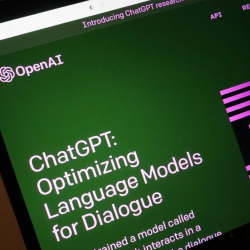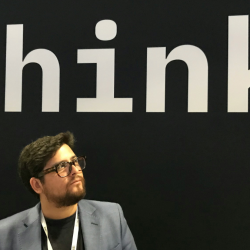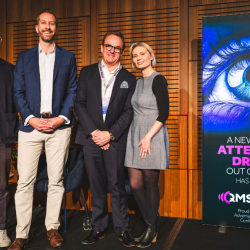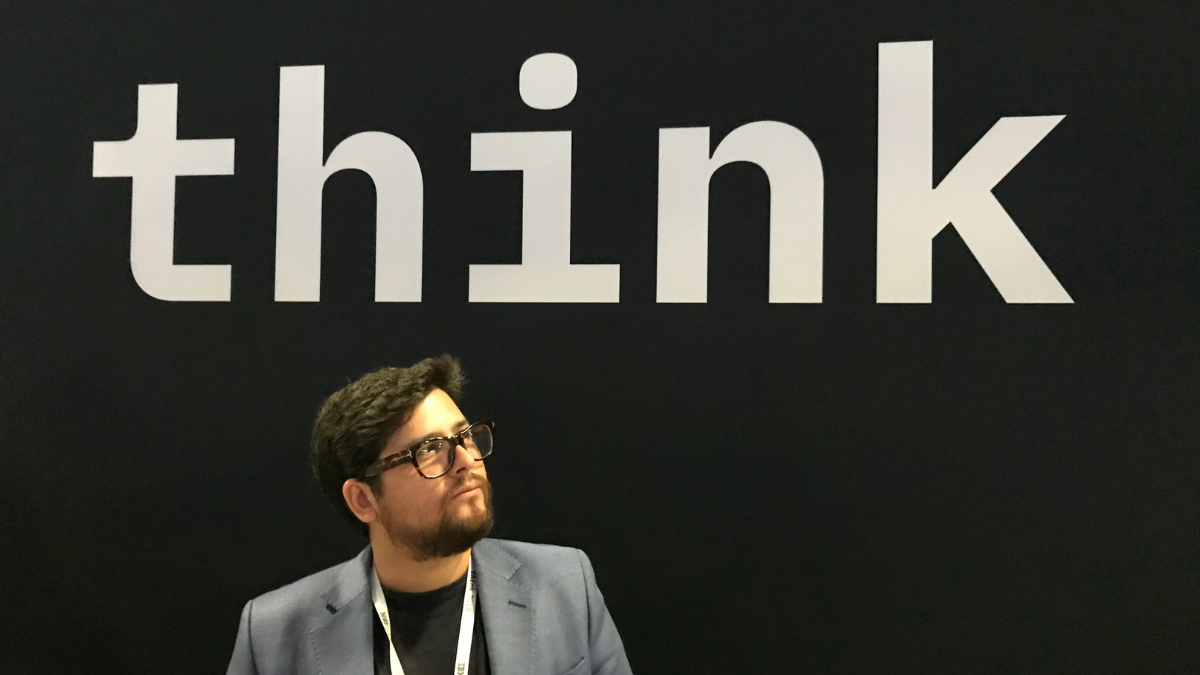Do you have your artificial intelligence (AI) strategy in place?
Is your five-year plan approved? Do you have all your ducks in a row, from your data privacy policy and brand safety rules, to the tech stack you want and the expertise you need to hire? No? Well don’t worry. From conversations I’ve had, nobody does — not even the world’s sharpest B2B marketing leaders. As an industry we’re caught between the opportunity AI presents on one side, and the fear of unknown consequences on the other. We know AI will change everything, but we can’t yet see how we’ll get there — or more importantly, what it means for us.
The way I see it, there will be three tiers of AI development in B2B marketing over the next year or two. At the top level AI will become digital transformation’s spiritual successor, as large-scale AI implementation (or, as we’ve eloquently dubbed it, ‘big AI’) alters businesses, structurally and organisationally. That’s going to be a long, expensive, highly complex process that most of us would struggle to get our heads around. Then there’s ‘middleware AI’: team and department-level projects designed to cut costs and improve organisational efficiency, with timelines driven by quarterly KPIs. It’s the third tier which we’ve affectionately called ‘small AI’, that we’re most excited about at The Frameworks. The discrete, strategic and creative tools or experiences, powered by generative AI, that can help businesses better understand and engage their customers today.
Brands can build small AI projects fast, deploy them within weeks, and report immediate results. Best of all, they don’t require dizzying contemplations about the future of business, or existential questions about ethics and the potential for megalomanic supercomputers. Testing these tools is a relatively low-risk venture that any business can do. Already, we’re seeing B2B businesses use generative AI in small-scale creative implementations to drive success for their brands.
Driving B2B success
What does success mean for B2B brands? Ultimately, it’s all about sales; getting those deals over the line and satisfying your customer, from beginning to end. Technological advances have pushed marketing further into sales territory. The two departments are working together more than ever, to build a clear picture of their customers and their needs. Small AI is going to change that relationship radically. Traditional marketing assets will become tools that can learn from customer inputs, and craft responses attuned to their needs and the business’s goal. These marketing tools will become sales agents in their own right: agents equipped with better insights and the ability to deliver a truly personalised experience.
Take, for example, a car retailer. An AI-powered website can save customers from scrolling through thousands of cars, by asking questions to understand their needs and recommending the best car to meet them, whether it’s a people carrier or a smart car. Formless, a software tool developed by the folks at Typeform, is a similar example. The full-screen chatbot platform adapts to users’ responses through AI-driven forms, and provides personalised questions enabling more accurate and insightful data collection for any business. Rather than being a pop-up on a website, the chatbot becomes the entire customer experience.
Beyond these tools, small AI could entirely transform effectiveness by reducing errors throughout the marketing and sales journey. In B2B marketing, the journey to a sale is usually long-winded, involving various assets and multiple conversations. In my experience, points of failure arise when customer information and the brand story get lost. AI can act as a co-pilot throughout the sales journey, tracking all communications with a customer, so it can remind you of that critical point the client made on a call with your colleague six months ago. As this develops it will enable true personalisation and increased customer satisfaction, while reducing the likelihood of error.
Small AI in action
There are already some brilliant examples of B2B brands using small AI to optimise, grab attention, and drive business success. In the banking industry, JP Morgan Chase improved its click-through rates on ads by 450% using AI startup Persado’s software to rewrite and optimise its copy and headlines. To borrow an example from the consumer world, Nutella’s Unica campaign in 2017 saw 7 million AI-created, one-of-a-kind Nutella jars sell out almost instantly. Both are exceptional examples of brands from very different industries using small AI to secure a big payoff.
It’s true we don’t yet know what regulations could come into play around generative AI tools in future. But in periods of rapid change businesses must be willing to fail in order to progress. And until that future becomes more apparent, the opportunities for small AI projects are abundant. At The Frameworks we’re keen to explore and exploit them for as long as possible. Of course, it’s essential to explore the opportunities at the middleware and big AI level too; which will have enormous implications for businesses. You don’t want to become so distracted by small AI that you’re the last to move when it comes to the big picture. But even so, my feeling is small and fast is the best way to start learning.
AI is worrying a lot of people right now, and for good reason. It’s best to implement discreet projects first.
The results speak for themselves once you start working with AI, and using it to engage customers. The data and results we’re getting back from these AI-powered marketing tools are better than we could ever have imagined. That said, AI can’t work alone. Access to Adobe Creative Cloud doesn’t make anyone a designer. Likewise, access to generative AI tools will only result in quality output if used in collaboration with an expert. Combined with hands-on experience and genuine professional expertise, small AI will enable a coherent, consistent, personalised and effective marketing and sales process from beginning to end. Our AI-powered future is on the horizon. Now is the time to take small steps towards it.
Featured image: Alexandre Debiève / Unsplash



























